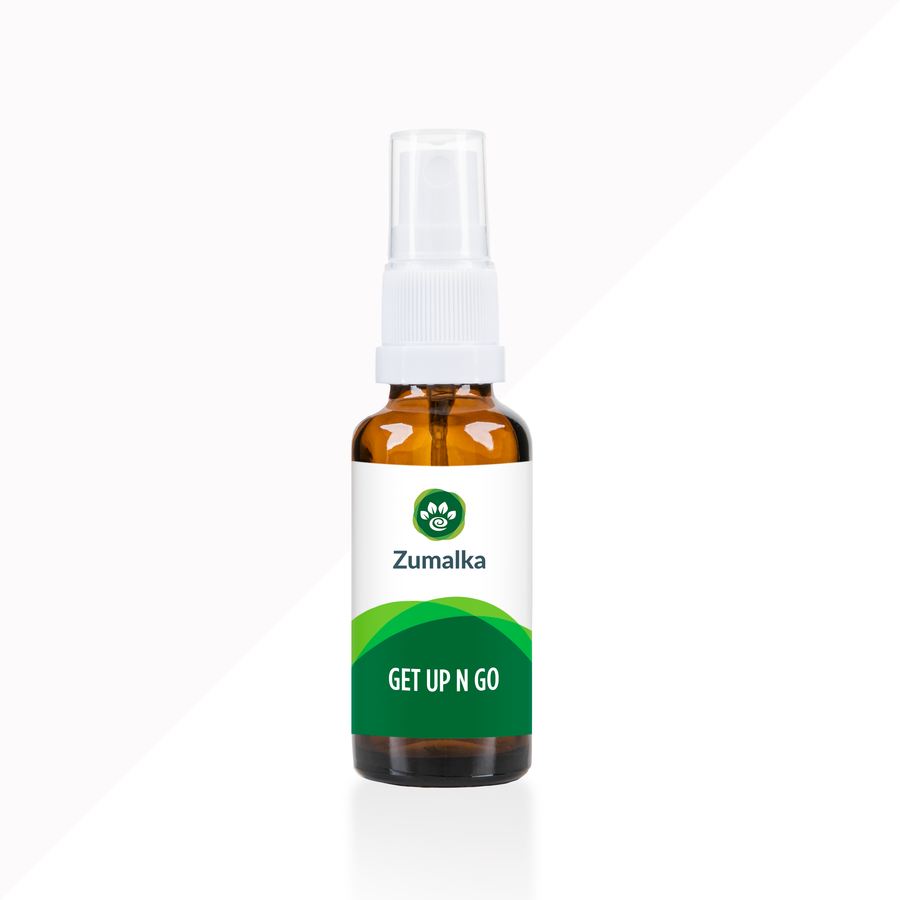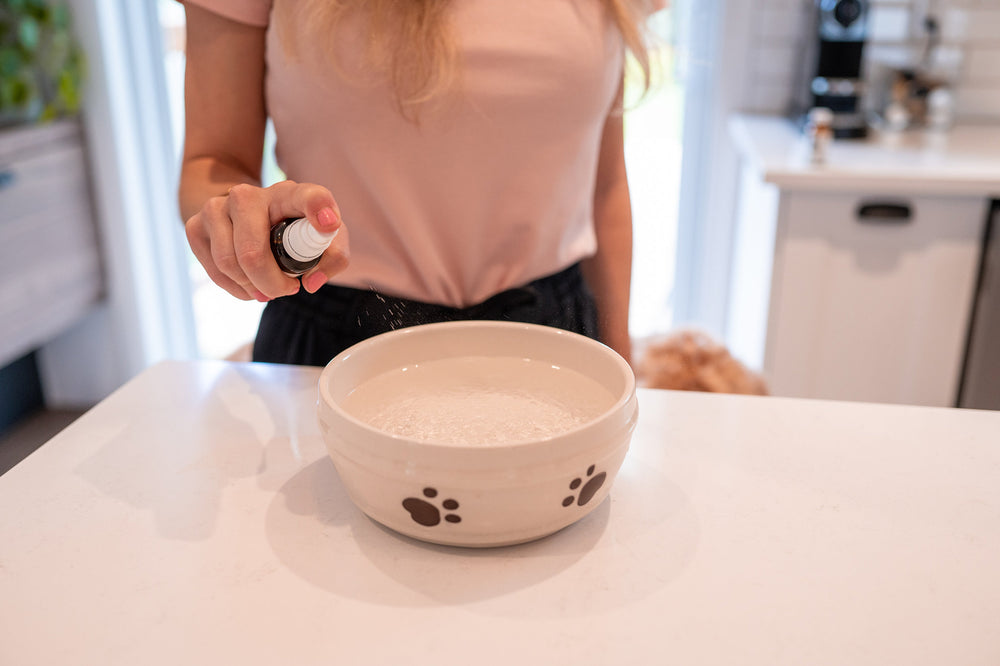How to Increase Your Dog's Lifespan: Key Tips for Pet Owners

If you're anything like most pet parents, you probably wish your dog could live forever. While that's impossible, there are several ways you can help your dog enjoy a longer, healthier life. This is true whether you have puppies, juveniles, or senior dogs.
In my experience as an animal homeopathy expert and a pooch mom, I've learned that boosting your dog's health is key to giving them the quality of life they truly deserve. In this blog post, I’ll go over some essential tips to add to your pet care checklist to help you achieve this.
So, without further ado, let's explore some simple yet essential tips that can help extend your precious dog's life.
A Quick Reminder for Pet Parents
Keeping your dog healthy requires commitment and effort. Ensuring your pet maintains optimal health requires consistency, as it’s not a one-time task. This applies to dogs of all ages, sexes, and breeds. I recommend starting as early as possible to ensure a longer, healthier life for your pet.
Just think about this: your canine best friend stays healthy, lives a happy life, and you get to spend more time with them. Isn't that a win-win? But remember, no matter how fancy your dog food is or how much you spend on grooming, none of it will work without consistency in their care.
As responsible pet parents, you're likely already practicing many of the tips I’ll be highlighting in this article. I hope you find this post helpful and informative as you continue making your dog's life even better.
Warning Signs Your Dog May Have a Health Problem

If you want to help your dog live a longer, healthier life, it's important to recognize the early signs of potential health problems. While it may seem like a lot to keep track of, there are just a few key indicators to watch for to ensure your dog stays happy and healthy.
Should you notice any of these signs, be sure to consult your vet or a pet wellness expert as soon as possible.
Changes in appetite and behavior are key red flags
- Sudden changes in behavior are a major sign of illness, especially in active, playful breeds. Along with increased sleep, affected dogs may also show unexplained aggression or irritability. Some may hide or withdraw from interaction, signaling discomfort or distress.
- Drastic changes in appetite are another indicator. While this can be signaled by a sudden loss of appetite, overeating may also occur. Additionally, your dog might show signs of unexplained weight loss or weight gain.
Never underestimate "common" tummy aches and sneezing
- The presence of coughing, nasal discharge, and constant sneezing may signal respiratory health issues. Wheezing or labored breathing may also accompany these symptoms. Many dogs with respiratory problems also have red, cloudy, or watery eyes, which could indicate allergies.
- Gastrointestinal problems are another important sign to watch for. The most common examples include nausea, vomiting, constipation, and diarrhea. If your dog’s stools are consistently wet or have blood in them, it’s crucial to seek help from your veterinarian or a pet wellness expert immediately.
A few too many "accidents" and constant scratching shouldn't be ignored
- Coat and skin health issues are indicated by constant scratching and itching. Bald patches or hair loss in specific areas often accompany these issues. In addition to a dull or oily coat, your pet may develop sores and lesions. Rubbing or pawing at a specific body part can also be a sign.
- Sudden changes in bathroom habits are key indicators of disease in dogs. While occasional accidents might happen, frequent occurrences are a cause for concern. In addition to urinating or passing stools more often than usual, your pet may also do so less frequently.
- Difficulty moving is often marked by sudden stiffness when your dog is walking, running, or playing. This can be a sign of joint health issues, such as arthritis. Contrary to popular belief, these diseases are not only common in older dogs but can also affect younger juveniles and even pups of certain breeds.
Keep in mind that dogs have a high pain tolerance and often won’t whine or vocalize when they’re in pain or uncomfortable. This is why being familiar with other indicators of discomfort is so important.
8 Ways to Ensure Your Dog Lives a Long and Healthy Life

As mentioned earlier, prolonging your dog’s life won’t be easy. It requires consistency, determination, and patience. Sure, this may sound like a lot of work, but the results will be worth it. Now, let’s explore the ways you can help your dog live longer.
#1. A well-balanced diet is crucial.
Your dog's diet plays a crucial role in ensuring a happy and healthy life. Contrary to what many pet parents mistakenly believe, it’s not just about buying expensive dog food, treats, or snacks. A truly high-quality diet for dogs focuses on balanced nutrition, appropriate portion sizes, and ingredients that meet your dog's specific health needs.
It’s crucial to choose a balanced diet that suits your dog’s age, size, and activity level. For example, a senior dog won’t need as much food as a growing puppy. However, a playful juvenile dog may require more food to match its high energy levels.
Avoid feeding your dog too much or too little. Overfeeding can lead to weight gain, while underfeeding can result in malnutrition. Many people overlook that "diet" also includes your dog’s water intake. Be sure to monitor how much water your dog drinks daily.
#2. Regular exercise helps prevent joint health problems.
Keeping your dog active plays two crucial roles in extending its lifespan: first, it helps maintain a healthy weight, and second, it provides much-needed mental stimulation. Additionally, regular exercise helps maintain muscle mass and can prevent joint issues, such as arthritis.
Contrary to popular belief, "exercise" doesn’t have to mean strenuous physical activities. Low-impact exercises like walking, playing fetch, scent games, and light training sessions can also give your dog a good workout. Even teaching your old dog new tricks can help keep them active.
Although exercise is essential for keeping your dog in good shape and helping it live a long, happy life, overdoing it can lead to health issues. Younger dogs can handle more demanding physical activities, but these exercises may not be suitable for older dogs.
#3. Consult a professional when you notice irregularities with your dog's health.
In my experience as an animal homeopathy expert, I’ve noticed that some pet parents only contact their vet after the health problem has worsened. However, diseases and illnesses are best caught early to prevent them from spreading or becoming more severe.
While I advocate for natural alternatives to keep your dog healthy and happy, don’t hesitate to consult a vet or pet wellness expert if you notice any irregularities in your dog’s behavior, eating habits, sleeping pattern, bathroom routine, or overall disposition.
#4. Dental health should be a priority.
Keeping your dog's teeth healthy is crucial to extending its lifespan. Dental health should be a priority because gum disease and tooth decay can lead to serious health issues and even fatal consequences for your pet.
Although it may seem simple, making it a habit to brush and clean your dog’s teeth prevents tartar buildup, which weakens the enamel and eventually leads to tooth decay. Neglecting dental disease can also put your dog at risk of heart problems, infections, and, in rare cases, sepsis.
Moreover, dental problems can cause significant stress for dogs. This is why preventative care for teeth and gums is crucial, whether your dog is young or old. A common symptom of dental disease in dogs is bad breath.
#5. Obese dogs are at a higher risk for developing health issues.
Maintaining a healthy weight in dogs plays a crucial role in helping your canine family members live longer. If your pet is overweight, they are more likely to develop conditions such as diabetes, hypertension, cardiovascular issues, and hormonal imbalances.
Most overweight dogs will develop joint health conditions over time if the issue is not addressed. In some cases, a joint supplement with anti-inflammatory properties may be needed to alleviate pain and discomfort.
It’s important to note that arthritis and osteoarthritis aren’t just conditions that affect an older pup. These issues can impact dogs of any age, sex, or breed.
#6. Provide regular mental enrichment for your dog.
As intelligent animals, dogs can experience mental health issues if they don’t receive enough mental stimulation. Like humans, they can be prone to extreme stress, anxiety, and even depression.
An important factor in extending your dog’s lifespan is regularly providing mental enrichment. There are many simple ways to achieve this. In addition to activities like scent games, low-impact exercise, hide and seek, and swimming, puzzle food toys are also a great way to provide mental stimulation.
#7. Spaying and neutering can help your dog live longer.
Regardless of your dog's age or breed, spaying or neutering at an early age can help prevent several serious health issues. These include conditions such as pyometra, prostate problems, mammary gland tumors, and cancers of the ovaries or testes.
As an expert in animal homeopathy, I understand that cancer is one of the most challenging diseases for your dog to face, regardless of age. If your pet is diagnosed with this serious condition, focusing on boosting their immune system can play a critical role in supporting their recovery and improving overall health.
#8. Your home plays a crucial role in your dog's quality of life.

Your habits as a pet parent can have a significant impact on your dog's health and well-being. The environment you provide can either promote a longer, healthier life or increase their risk of disease and illness.
Many dogs tend to gain excess weight due to inappropriate feeding habits, while others develop anxiety from a lack of mental enrichment. Additionally, some dogs may miss out on the quality of life they deserve because they are regularly exposed to harmful chemicals.
You may not realize it, but each time you smoke or vape, you’re exposing your dog to potential organ damage. Smoking and vaping also increase your own risk of serious health issues.
A Final Word
While we can't make our dogs live forever, following a few key tips can help extend their lifespan. These are actionable steps you can take and include in your pet care routine at home. As responsible pet owners, it’s our duty to provide our dogs with happy, healthy lives.
I hope this article has been informative for you. Feel free to share any questions or insights in the comments section—I look forward to engaging in a meaningful discussion with you.







Hi Bonnie, Personally I do tend to agree that dogs, just like us need real food. However, each pet parent is different and we like to give tips to all the different types of pet parents. The type of kibble will of course be very important for pet parents that choose to go that nutritional route. We also have other articles that are more targeted to pet parents who prefer raw or cooked food. I hope that our insight can be helpful to all pet parents wanting the best health for their pets.
-Zumalka
I’m very surprised that you recommend kibble for helping keep teeth clean. Plus advised the quality food available at the vets office. That’s Science diet and it’s really crap in a bag. Dogs need real food just like humans do.
Leave a comment